Bao Qifan has worked his way up from being a blue-collar worker to become a master of shipping and cargo, Wang Ying reports in Shanghai.
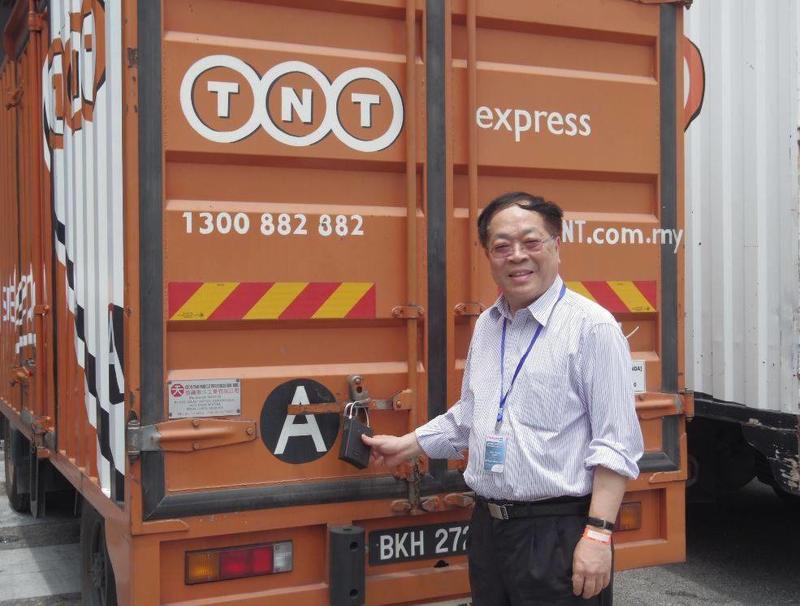 Bao continues to promote the ISO 18186 standard to shipping and logistics organizations around the world. (PHOTO PROVIDED TO CHINA DAILY)
Bao continues to promote the ISO 18186 standard to shipping and logistics organizations around the world. (PHOTO PROVIDED TO CHINA DAILY)
From a blue-collar cargo handler to a technology pioneer with 50 global patents, Bao Qifan seems to have acquired the magic ability to be able to crack the hardest nut every time. After winning numerous awards at home and abroad, Bao wants to share with young people the secret of his success-passion and hard work.
I’m nothing but an ordinary person. All I did was to love what I do, and try my best to do my work well
Bao Qifan, reform and opening-up pioneer medalist named by the State Council
Bao's first innovation can be traced back to 1978, when China began its policy of reform and opening-up. Then 27-year-old Bao got an opportunity to study part time at Shanghai Polytechnic University, majoring in hoisting and conveying machinery.
Based on the knowledge learned from the machinery major, as well as the experience of six years as a cargo handler and four years as a repairman, in 1979, Bao successfully modified the variable cross section of a crane's winding drum, effectively lengthening the use of wire ropes from three per month to one every three months.
The innovation helped greatly lower the cost for wire ropes at cargo ports, and won recognition from Japanese experts, who suggested that Bao apply for a patent for his design. But, even though he would go on to own more than 50, at the time, Bao had no idea about patents.
Later, in September 1980, Shanghai's Wenhui Daily published a story about Bao's winding drum design.
"This small story was really meaningful for me. It was the first time that my name was printed in a newspaper, and I always regard it as a starting point, inspiring me to explore more new ideas," says Bao.
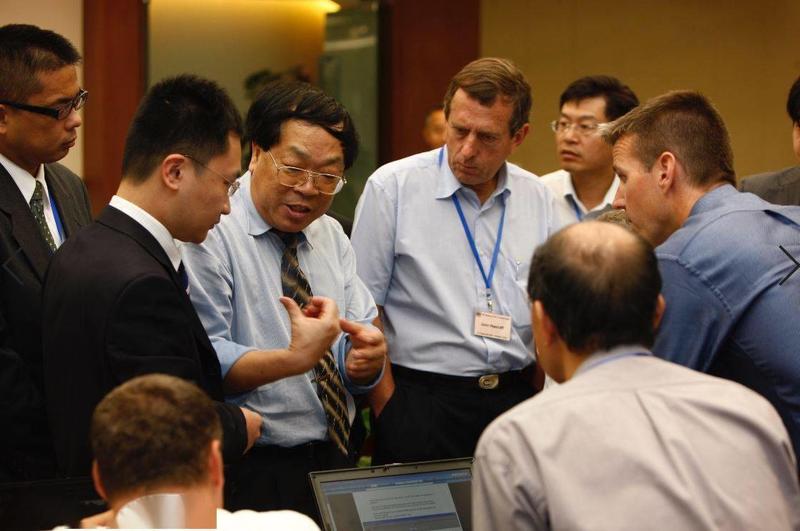 Bao Qifan explains the ISO 18186, the first international standard China has formulated in the transportation and logistics sector, to his international peers. (PHOTO PROVIDED TO CHINA DAILY)
Bao Qifan explains the ISO 18186, the first international standard China has formulated in the transportation and logistics sector, to his international peers. (PHOTO PROVIDED TO CHINA DAILY)
In 1981, Bao graduated from the Shanghai Polytechnic University, and started a new position as a technician at Shanghai port. In this role, Bao invented and perfected a series of cargo handling systems.
"To be honest, I knew little about cargo handling before, but I decided to study it to ensure the safety of my colleagues," he says.
Every year, the local port was handling between 2 million and 3 million cubic meters of wood from overseas, which would often cause injury and sometimes even death.
Between 1968 and'81, 11 workers were killed by falling wood at the port, and 546 workers were injured. Witnessing some of these tragedies, Bao felt an urgency to mitigate the frequency of such incidents.
In the following three years, Bao spent all of his spare time researching, designing and experimenting. With the help of his colleagues, Bao finally invented a hydraulic grab system to safely handle bundles of wood. As well as the improved safety, from a business perspective, wood handling efficiency was more than doubled.
Learning about Bao's innovation, the Ministry of Transport immediately promoted the grab system nationwide.
Since the system's introduction, no major injuries or death related to wood handling have been reported in nine of the country's major ports.
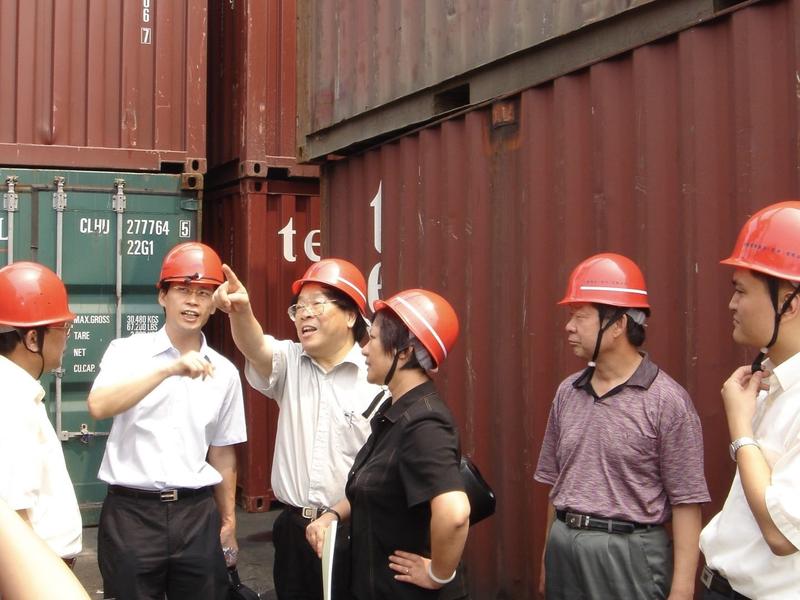 Before retiring, Bao worked in the port industry for 47 years. (PHOTO PROVIDED TO CHINA DAILY)
Before retiring, Bao worked in the port industry for 47 years. (PHOTO PROVIDED TO CHINA DAILY)
As that system proved to be such a success, Bao turned his attention to the handling of pig iron-a tough and dirty job. Needless to say, Bao's efforts proved fruitful and pig iron grab system was introduced in 1985.
Not one to sit on his laurels, Bao set his sights on a "hat-trick", starting work on designing a grab system for scrap steel and started research and development of an accompanying processing system.
Thanks to Bao's inventions, working conditions at ports and railways, as well as electricity, sanitation and nuclear power plants, among other industries-both at home and in 20 other countries and regions-were greatly improved.
Bao was dubbed the "cargo-handling king".
In 1996, Bao was promoted to the position of manager at Longwu port company, a subsidiary of the former entity of Shanghai International Port Group. At the time, the port was running at a much lower capacity than it should because few ships were choosing to make the long journey-more than 6 hours sailing from the East China Sea-to dock there.
Bao took the bold decision to pursue a business model not being deployed in China at the time to try and encourage more vessels make port at Longwu. In December that year, Bao oversaw the inauguration of the country's first domestic container transportation route. It not only made the Longwu port company profitable, but also reshaped domestic shipping in line with international standards. To date, as many as 107 million TEUs (20-foot equivalent units) of cargo are transported domestically per year.
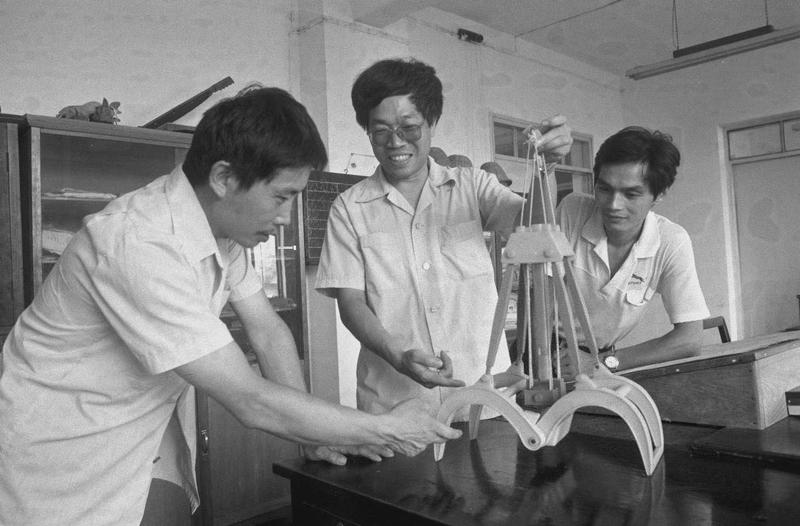 Bao Qifan and his colleagues research and design a system to help mitigate the danger faced by cargo handlers and reduce the heavy physical work involved. (PHOTO PROVIDED TO CHINA DAILY)
Bao Qifan and his colleagues research and design a system to help mitigate the danger faced by cargo handlers and reduce the heavy physical work involved. (PHOTO PROVIDED TO CHINA DAILY)
Entering the new millennium, Bao was named as the vice-president of SIPG to take charge of technologies, facilities and infrastructure. This new platform enabled Bao to launch research projects into port informatization, automation, and intelligence.
Since 2004, Bao's exploration of port automation has seen a series of projects launched at Shanghai port, ranging from the nation's first automated and unmanned container yard and the world's first automatic bridge-style unloader, to an automatic bulk loading machine.
These innovative applications have provided strong support in helping the port of Shanghai grow into the world's largest container port.
He has also turned his hand to other pressing issues in container transportation, such as combating illegal migration, smuggling and theft. As such, Bao devoted himself into the invention of a container radio-frequency identification device to enhance the transparency and safety of container transportation.
By tracing all container information on a global scale, the RFID device can report the condition and location of the containers via satellite positioning, satellite communications, and the internet.
Such functionality requires the cooperation of related nations and recognition of the international standards drafted by the creator of the device.
Since 2011, Bao has led the team in drafting ISO 18186, which became the first international standard China has formulated in the transportation and logistics sector. To date, countries such as the United Kingdom, France, the Netherlands, Denmark, Saudi Arabia and Czech Republic have adopted ISO 18186 as a national standard. Japan and Russia are planning to follow suit, and the standards have been confirmed to be practical in the United States and Germany.
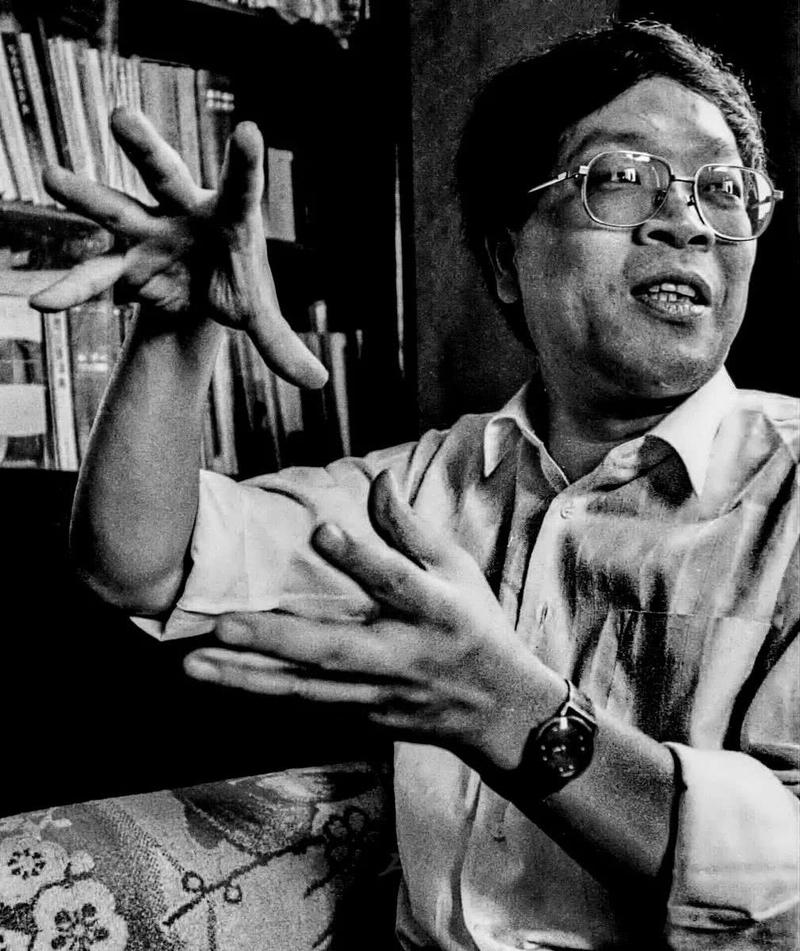 Bao Qifan and his colleagues research and design a system to help mitigate the danger faced by cargo handlers and reduce the heavy physical work involved. (PHOTO PROVIDED TO CHINA DAILY)
Bao Qifan and his colleagues research and design a system to help mitigate the danger faced by cargo handlers and reduce the heavy physical work involved. (PHOTO PROVIDED TO CHINA DAILY)
But more effort is needed to make the device applicable worldwide, and Bao says he will continue to work tirelessly to promote ISO 18186 to more nations and regions.
In 2012, Bao attained a new title-staff member of the Shanghai municipal government-which allows him to bring to the fore more creative ideas as a member of a government think tank.
Bao's latest idea pertains to ecological protection and the development of new Hengsha island in Shanghai. The project has so far produced an additional 56 square kilometers of land to aid the city's further development.
"This is just the beginning. There is more to come," says Bao.
In 2018, Bao was named as one of the 100 reform and opening-up pioneer medalists by the State Council.
"Bao Qifan is a role model of Chinese workers who grew together with China's opening-up. In more than 40 decades, Bao produced inventions and innovations in every role he accepted, and became a true star among China's millions of workers," says his nomination.
"I'm nothing but an ordinary person. All I did was to love what I do, and try my best to do my work well," Bao says.
"I hope my personal experience will inspire a younger generation to develop better innovations in the future."
Contact the writer at wang_ying@chinadaily.com.cn


